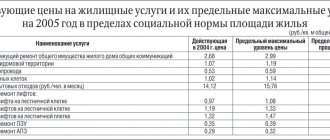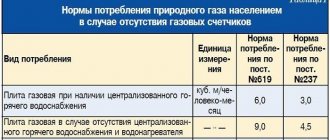Last modified: June 2020
Every Russian citizen has the right to own and dispose of property, and the inviolability of the owner’s right is enshrined in Art. 35 of the Constitution. The size of the property does not have a significant role in determining the status of the owner, but it imposes some restrictions under which share owners must ensure a comfortable existence using their shares in accordance with the law. If joint ownership of part of an apartment violates or infringes on the rights of other co-owners, it is necessary to solve the problem by depriving the owner of a share in the apartment, based on individual circumstances and the law.
How can you deprive a share in an apartment without consent?
As a result of privatization or a purchase and sale transaction, property is often re-registered to several owners at once. Although the property is still considered a single property, it belongs not to a single owner, but to several persons who must determine the procedure for using common equipment, non-residential premises, and comply with the requirements for the maintenance and servicing of the property. If coexistence is impossible, the parties have the right to agree to buy out the share by mutual consent , followed by re-registration of the right to property.
The transaction to buy out a share from co-owners does not require prior approval , since the right of priority purchase belongs to the current co-owners. If the owners of the shares have made a general decision and signed a purchase and sale agreement, it is enough to have it certified at a notary office and contact the registration authority to make changes to the right to property.
Unfortunately, too often co-owners of housing fail to agree on the rules of cohabitation, or the conditions for the sale of square meters are not suitable, and they have to look for other options for resolving the problem within the framework of the procedure provided for by law. Forced redemption is possible, but requires certain circumstances:
- The size of the share is negligible to ensure comfortable living for all co-owners.
- There are applicants from neighbors who are willing and ready to buy out the part belonging to another.
- One of the apartment owners has created conditions that infringe on the interests of others, and the attitude towards the property does not meet the requirements for paying for the maintenance and maintaining the property in order.
There is no way to avoid a court decision if the seller does not agree to vacate the premises or give up the share, and also if the buyer offered an amount that does not correspond to the market value of a similar part of the property. When it comes to the alienation of housing, the parties act on the basis of the constitutional norm given in paragraph 3 of Art. 35 of the Constitution of the Russian Federation, which prescribes seizure only if there is a corresponding court order.
It is important to take into account that in the absence of the owner’s guilt in causing discomfort to the remaining residents, there are no grounds for the forced seizure of housing without payment of the required compensation. Usually, this happens when one of the co-owners intends to combine several shares, with the obligatory provision of compensation payment within the amount prescribed by the court.
The situation is different when the tenant ignores his obligations for maintenance, repairs, and payment for utilities, using utility resources and common property in full. Although defaulters are not welcome and have no defense, a forced seizure of a debtor's share is unlikely. FSSP employees, when trying to collect debts, will first of all pay attention to more liquid property. If the debtor owner is deprived of property, he will receive compensation after deducting the debt and the costs of enforcement proceedings.
How can one legally deprive an owner of a share in an apartment?
It is important to understand that one share owner does not have any documentary right to withdraw the share from another. Trying to get rid of an unwanted neighbor from your living space or using other methods of pressure is illegal!
How can you deprive the owner of a share in an apartment? What are the reasons for this?
- Voluntary consent of the shareholder . At the negotiating table, you can try to find a compromise solution that will suit all share owners.
- Deprivation of property rights based on a court decision . In exceptional cases, a court decision may be made to terminate ownership rights or to put the share up for public auction (this can happen if, for example, the shareholder has a huge amount of debt on utility bills, comparable to the cost of the share). This paragraph, one way or another, assumes that the shared owner must behave illegally.
- Forced redemption of a minor share . One of the most realistic options for implementation in practice if it is impossible to reach an amicable agreement with another shareholder.
So, you are the owner of a share in the ownership of the apartment. There are other co-owners of shares with whom, for various reasons, your relationship has not worked out. It was not possible to persuade them to part with their shares; there are no grounds for terminating ownership rights; the only option left is the forced purchase of a small share.
Can't come to an agreement with other shareholders and want to deprive them of their property rights?
Call us now and get legal advice on your problem
Forced repossession of housing
If an unscrupulous owner lives in an apartment, you can try to prove the significance of his violations and the severity of the offenses that make it impossible to live together with him. It is worth considering the possibility of preparing evidence for court based on the following facts:
- if there is a claim for collection of debt on a mortgage loan;
- filing a claim on behalf of the management company (housing office, homeowners association, utilities) to collect unpaid and overdue monthly payments;
- a claim from the non-recipient of alimony (his legal representative) or from the prosecutor's office for repayment of alimony debt that has accumulated after the relevant court decision on the assignment of payments.
If the court decides to collect the accumulated debt by selling the property, the defaulter’s home is put up for sale. The loss of a part in the apartment gives the right to receive compensation in the amount of the difference between the proceeds from the sale and the total amount of the debt.
The fact that the owner did not use the property for a long time and lived in a completely different place can be interpreted against the plaintiff. The court will definitely take into account the fact that the negligent co-owner has another home or place of residence.
Forced purchase by other owners
If the share that a person owns is too small to provide him with sufficient living conditions, there is every chance of winning a lawsuit in court and depriving him of the share in the apartment without the consent of the owner.
Before going to court, it is necessary to identify the grounds and find confirmation of the following conditions:
- the defendant owns an insignificant part of the apartment;
- it cannot be allocated in kind by assigning a separate room to an individual owner;
- the housing does not belong to the only one and is not occupied by the owner, since he lives in another, more comfortable apartment or house.
Difficulties arise when determining the maximum size of the share, which will give the right to repurchase and transfer compensation to the dissenting owner. You can own a 1/10 share in a private house of 200 square meters and have every opportunity to allocate in kind and equipment for comfortable living.
Sometimes even ½ part turns out to be unacceptable, since the footage of a small apartment is 18-20 square meters without the possibility of organizing a separate comfortable existence. Although the difference in shares is significant, the actual circumstances are different. In the first case, the court may reject the claim to recognize the share as insignificant, but in the second there is every chance of winning the case.
Deprivation of a share in an apartment
Shared ownership of residential premises is a method of owning real estate that involves “dividing” an apartment between citizens into several parts.
The number of owners is not limited; everyone's interests are protected equally; It is impossible to deprive a person of the right to a house without legal grounds. Can an apartment owner lose his share? Yes.
Options for depriving the owner of a share in an apartment?
- Consent of a participant in shared ownership to renounce living space. The parties negotiate all the terms of the transaction, prepare a package of necessary documents and, after completing the registration steps, receive the papers.
- Deprivation of property rights based on a court decision. Let's say there are large debts on rent or debt to bailiffs (the owner of the apartment has been deprived of parental rights, he has obligations to pay child support, which he does not fulfill).
- The redemption of an insignificant share is forced. This is a last resort measure used if the owner refuses to sell it voluntarily.
How to force a share buyout?
It is possible to deprive the owner of a share in an apartment or house through forced redemption, subject to the following conditions:
- part of the apartment is insignificant;
- cannot be isolated in nature;
- does not affect the general right to use the house.
The legislator does not specify which share is considered insignificant; the courts, when considering a case, must themselves determine this size. Practice proceeds from the fact that it should be less than the established limit per person (this indicator is determined by the constituent entity of the Russian Federation independently).
When making a decision, judges are guided not only by the area of the room, but also by the following factors:
- ownership of the apartment was obtained as a result of a transaction that did not imply the citizen’s abandonment of the house (inheritance);
- the owner of the apartment acquired his share knowing that there were other owners, further coexistence with whom was not possible for him.
In order to buy out a share, you need to know the market value of the property. Therefore, when going to court, it is better to have the results of the apartment assessment in hand and offer reasonable monetary compensation to the defendant.
Documents for court
Preparation for trial begins with formulating demands based on the situation and defining a strategy. The success of a case depends not so much on the presence of sufficient grounds, but on the ability to correctly draw up a claim and prepare the evidence base.
When considering cases of deprivation of a share in property, regardless of the grounds presented, the following documents and their copies must be collected:
- Identification document of the plaintiff (passport of the Russian Federation).
- Statement of claim in 3 or more copies (one for the court, the rest for each party to the proceeding).
- Document of title for the property (USRN extract, certificate of ownership).
- Title documentation (on the basis of which the right to property appeared, this could be a purchase and sale agreement, certificate of inheritance, deed of gift, etc.)
- Technical passport and other documentation describing the characteristics of the property.
- Certificate of registered residents (you can take an extract from the house register).
- A certificate from the bank about the balance of funds in the account or deposit, confirming the ability to repurchase the share.
- Paid receipt of court fee.
The statement of claim, regardless of the basis for deprivation of property, is subject to general requirements formulated in the provisions of the Civil Procedure Code (Articles 131-132).
For forced seizure
Difficulties await when preparing documents that will prove to the court a person’s reluctance to take part in the maintenance and upkeep of the property. Any certificates indicating debt on current housing and communal services payments and the tenant’s refusal to pay for consumed resources will be useful in court. It may be necessary to call witnesses from among your roommates to the hearing.
Although the court considers this option for solving the problem quite harsh, there are good chances to achieve an affirmative decision when filing claims by interested institutions (bank, management company, utility providers, etc.)
An approximate list of the package collected for the forced seizure of real estate includes:
- Certificate of mortgage debt (if the claim is filed by an injured creditor).
- Certificates of overdue payments for housing and communal services (if the claim is initiated by the management organization).
- Certificate from the bailiff about the existence of alimony debt (the claim is filed by the recipient of the alimony or the prosecutor's office).
- Documents on the initiation of proceedings and seizure of the apartment for criminal offenses and charges of corruption.
- Any confirmation of a violation of the rights and interests of other citizens (apartment or housemates) in the form of protocols drawn up by representatives of law enforcement agencies, acts of the sanitary and epidemiological station, housing office, etc.
Properly prepared audio recordings, video and photographic materials can be submitted as arguments. If there have already been legal proceedings regarding the apartment in the past, the documents are also attached to the new case.
For forced redemption
In addition to a statement from the plaintiff, which describes in detail the circumstances allowing for a forced buyout, documentary evidence will be required:
- Documents on the right to property (extract from the Unified State Register, certificate).
- Certificate of registered residents (from the house register).
- Technical passport.
- Technical documentation on the impossibility of allocating a share in kind.
- Evidence of utility debts.
- An extract from the Unified State Register indicating the availability of other property for residence.
During the hearing, additional documents may be requested if the judge deems it necessary.
It is very difficult to collect the necessary supporting documents, but without a substantiated claim drawn up in accordance with the requirements of the Civil Procedure Code, the case may not even be accepted for consideration. You will need a clear justification in accordance with the law, so without the help of a lawyer, the chances of success are minimal .
How to solve a problem

Deprivation of ownership rights in a privatized apartment is permitted with the consent of the owner himself. But the owners must reach an agreement among themselves.
Nevertheless, disputes between people about how to deprive the owner of a share in an apartment are most often resolved by the court.
The owner of the property can be evicted for utility debts. But the amount of debt must be significant. Those. a share in an apartment can be taken away for violating the rules established by the Housing Code.
The procedure for depriving a share through the court
Resolution of the issue of deprivation of a share in court is possible only within the framework of legal proceedings in courts of general jurisdiction at the place of residence of the defendant. During the meetings, the parties are heard, witnesses are summoned, and official bodies and independent experts are involved.
Stakeholder actions should include the following steps:
- Carry out a pre-trial settlement by sending a written offer to buy part of the property on the proposed terms. The document indicates the period allotted for making a decision.
- Prepare documents for court proceedings. The exact list depends on the circumstances and the identified grounds for seizure of housing. When deciding whether to accept the claim for consideration, the judge will proceed from the legality of the plaintiff’s powers and the evidence presented.
- In addition to the court, all participants in the trial must receive copies of the statement of claim. Each defendant is sent a copy, plus the original application remains in court.
- During court hearings, the plaintiff explains his position and brings documents and witness testimony into evidence. The defendant has the right to present his arguments, explaining the reasons for disagreement with the terms of the repurchase.
- If the court decides to satisfy the claim, the plaintiff is obliged to pay the amount determined in the court decision.
After the transaction is completed, the process is completed by re-registration of the share with the merger of several parts into 1 owner. Registration involves contacting the MFC or the Rosreestr branch at the location of the property.
Arbitrage practice
Real estate issues are among the most complex when it is impossible to assess the success of the event in advance. Since the law does not have clear procedures for depriving housing or determining the insignificance of a share, the judge has to be guided by the general norms of housing and civil legislation, with equal chances of refusing or satisfying the plaintiff’s claims.
In such a situation, a lot depends on the prepared evidence and the correct substantiation of the position in court. A huge role will be played by the conclusions presented by independent bodies and experts recognizing the rightness of the plaintiff or defendant.








